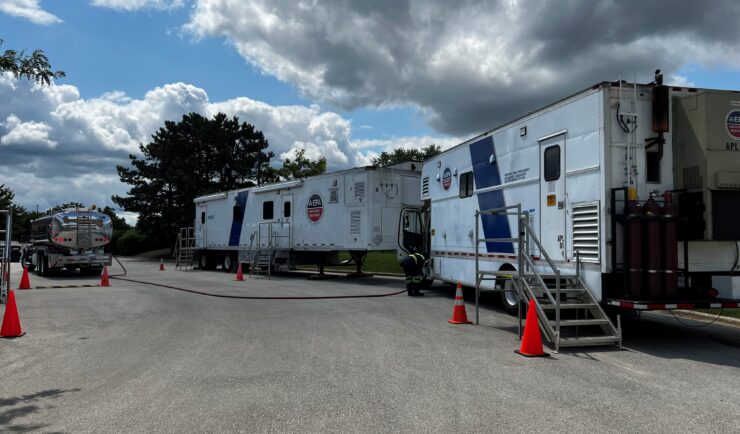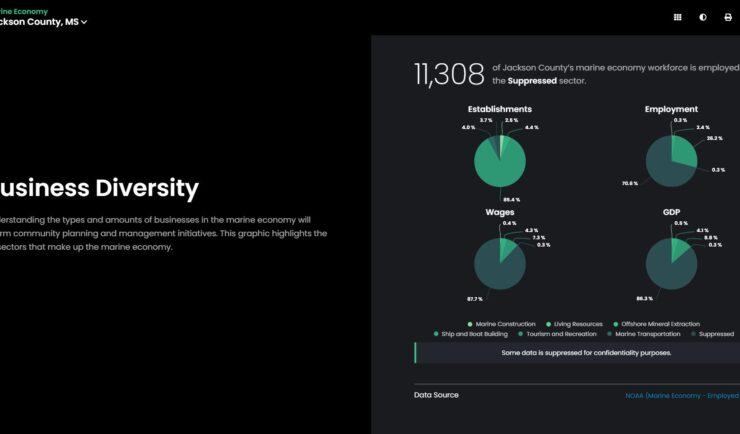Our employee owners have been supporting a remediation project in the Philippines. Diesel fuel leaked from a storage tank and seeped into the groundwater and soil. Emergency measures were taken but clean-up was delayed due to COVID restrictions. After some of the more strict COVID restrictions were lifted, CSS scientists joined the environmental due diligence crew to continue the assessment and start the remediation process. Our experienced team provided consulting services, and assisted with groundwater and soil sample collection and testing. Currently, our team is assisting with bringing this project to the finish line, which will be a major accomplishment given the delays and challenges, including cultural differences, heightened security, the remote location, and continued COVID restrictions.

The tank farm where the leak occurred in the Philippines.

Groundwater sample with visible diesel fuel collected near the tank farm.

Soil sample collected near the tank farm where the diesel leak occurred.
See More CSS Insights

Emergency Response Support for the Republican National Convention
CSS employee owners on contract with the U.S. Environmental Protection Agency’s Portable High-throughput Integrated Laboratory Identification System — a mobile analytical unit known as PHILIS — provided emergency response support for the 2024 Republican National Convention. PHILIS mobile laboratory units are designed to provide onsite analysis of environmental conditions, including air and soil samples, contaminated…

Contributing to Wind Energy Area Designations
The Bureau of Ocean Energy Management (BOEM) recently announced two Wind Energy Areas (WEAs) in the Gulf of Mexico. The WEAs are located off the coasts of Galveston, Texas, and Lake Charles, Louisiana and have the potential to power nearly three million homes. BOEM collaborated with the National Oceanic and Atmospheric Administration (NOAA) to identify…

Major Overhaul and Update to an Existing Tool
Congratulations to our staff on the highly anticipated new release of Coastal County Snapshots! Our staff are part of a larger team that includes the prime contractor, Lynker, Inc, and federal staff from the National Oceanic and Atmospheric Administration’s Office for Coastal Management who worked for over a year to complete this major task. Coastal…
